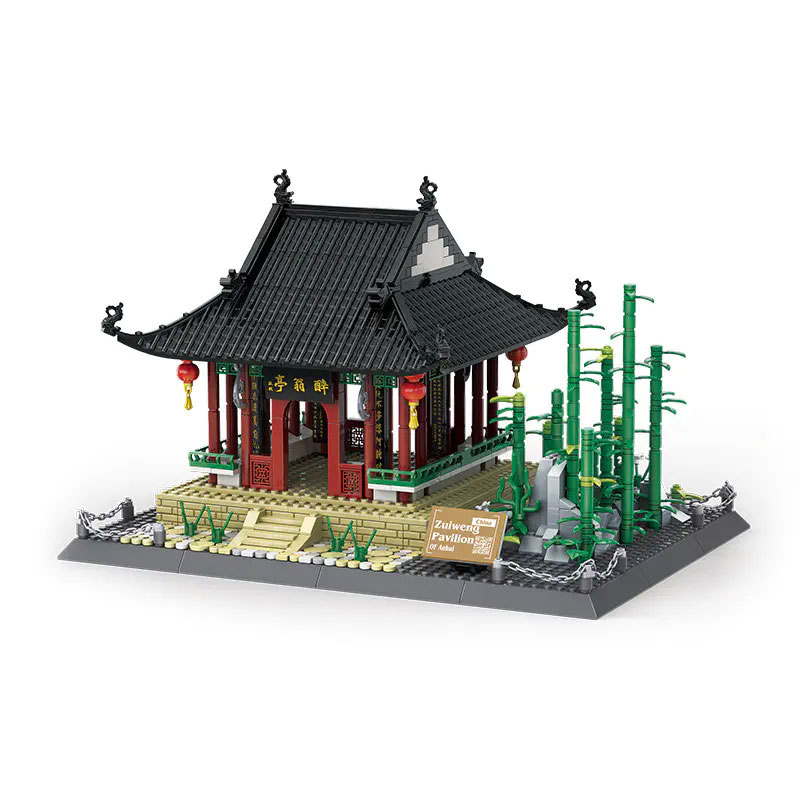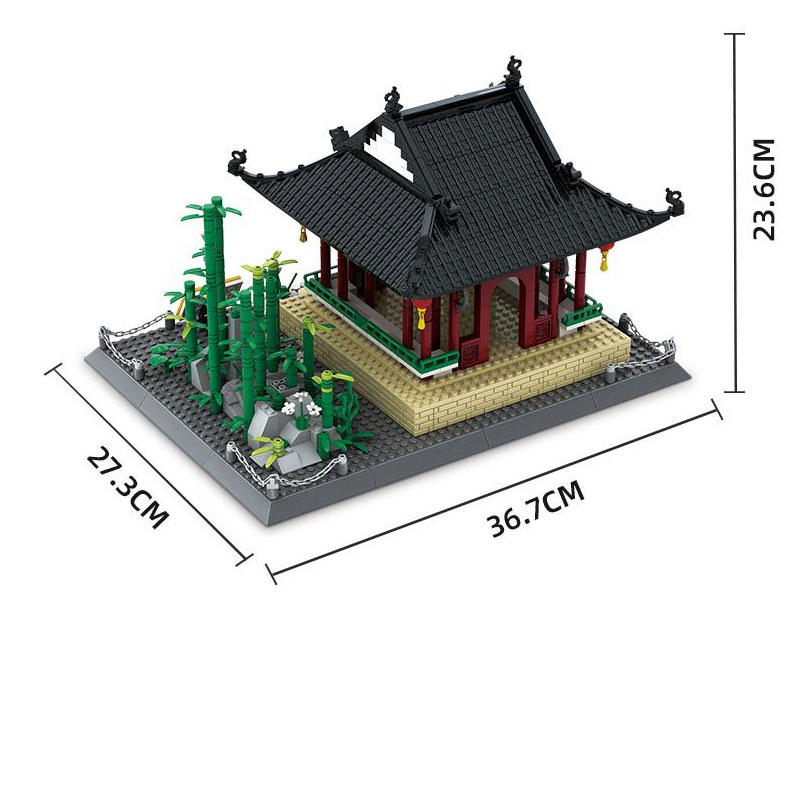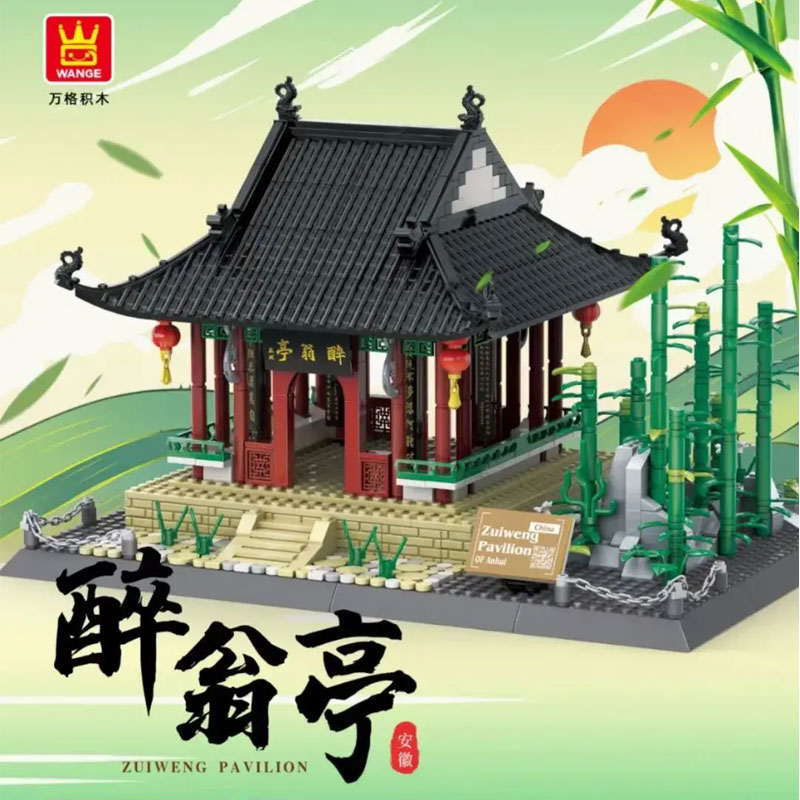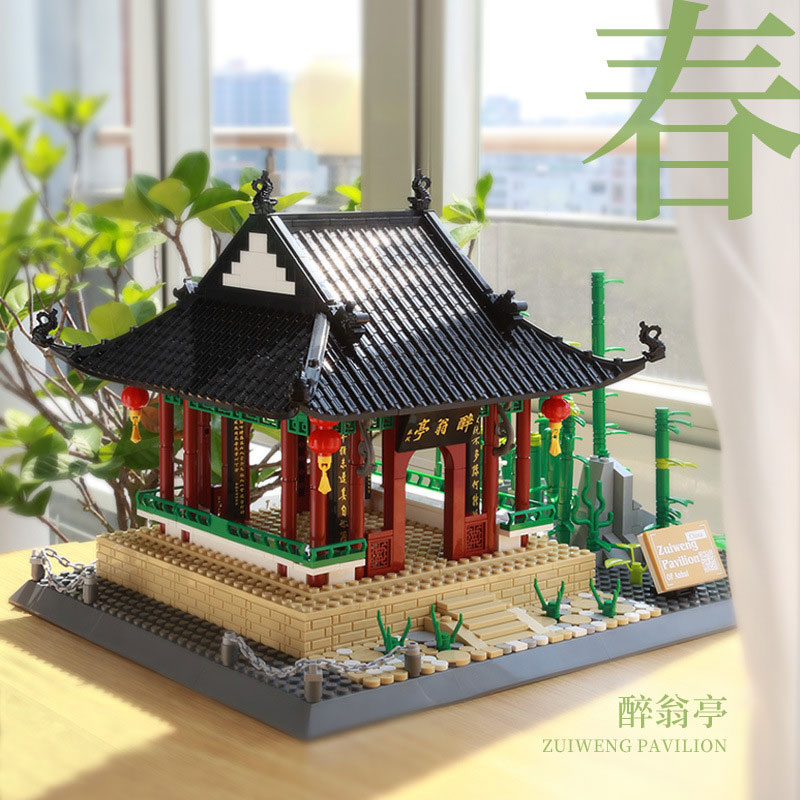Description
✅ Wange 5236 Zuiweng Pavilion Anhui China
✅Zuiweng Pavilion, also known as Zuiwengting or Drunken Weng Pavilion, is a historic pavilion located in Huangshan City, Anhui Province, China. It is a renowned cultural and architectural site that is closely associated with poetry and Chinese literati culture.
🚫 IMPORTANT!
Product Name: Zuiweng Pavilion Anhui China
Category: Modular Building
This Kit Contains: Wange 5236
917 pcs Good Quality Bricks
Size: 36.7 × 27.3 × 23.6 cm
Manual Instructions
📌Nature of the protagonist
Introducing our proud collection named “Zuiweng Pavilion Anhui China” you should not miss.
Zuiweng Pavilion is situated in the picturesque landscape of Huangshan (Yellow Mountain) in Anhui Province, known for its stunning natural beauty. Zuiweng Pavilion was originally constructed during the Tang Dynasty (618-907 AD) and has a history of over a thousand years. It was rebuilt and restored during different periods throughout its history. The name “Zuiweng” translates to “Drunken Weng.” It is associated with the story of Lin Bu, a famous poet from the Song Dynasty, who is said to have lived in seclusion in the pavilion and enjoyed a simple and reclusive life.
✅Zuiweng Pavilion, also known as Zuiwengting or Drunken Weng Pavilion, is a historic pavilion located in Huangshan City, Anhui Province, China. It is a renowned cultural and architectural site that is closely associated with poetry and Chinese literati culture.
🚫 IMPORTANT!
Product Name: Zuiweng Pavilion Anhui China
Category: Modular Building
This Kit Contains: Wange 5236
917 pcs Good Quality Bricks
Size: 36.7 × 27.3 × 23.6 cm
Manual Instructions
📌Nature of the protagonist
Introducing our proud collection named “Zuiweng Pavilion Anhui China” you should not miss.
Zuiweng Pavilion is situated in the picturesque landscape of Huangshan (Yellow Mountain) in Anhui Province, known for its stunning natural beauty. Zuiweng Pavilion was originally constructed during the Tang Dynasty (618-907 AD) and has a history of over a thousand years. It was rebuilt and restored during different periods throughout its history. The name “Zuiweng” translates to “Drunken Weng.” It is associated with the story of Lin Bu, a famous poet from the Song Dynasty, who is said to have lived in seclusion in the pavilion and enjoyed a simple and reclusive life.












Reviews
There are no reviews yet.